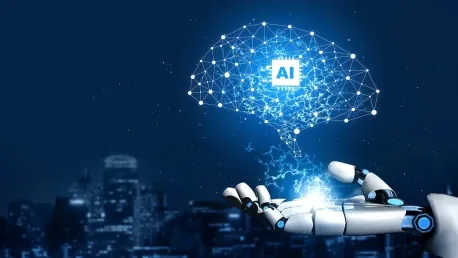The transformative impact of generative AI (GenAI) on software development is nothing short of revolutionary. This technology, which automates coding tasks using advanced machine learning models, especially large language models (LLMs), has evolved dramatically since its inception. Although early steps in the 1960s laid foundational concepts, it was the advent of generative adversarial networks (GANs) in 2014, alongside the rise of sophisticated LLMs, that marked significant leaps in AI’s capabilities. Today, AI code generation is at the forefront, offering numerous benefits that revolutionize the industry. However, it also poses specific challenges that require careful consideration. As we delve deeper, we will examine how AI code generation enhances productivity, democratizes coding, and addresses prevalent concerns about quality and skills erosion. This balanced overview will provide a comprehensive understanding of AI’s role in shaping the future of software development.
Enhancing Productivity and Reducing Time-to-Market
AI code generation significantly boosts productivity by automating repetitive coding tasks, which traditionally consume a substantial amount of developers’ time. By handling these mundane aspects, AI allows developers to focus more on high-level design and critical thinking. The technology’s ability to quickly produce error-free code means projects can move from conception to completion much faster, reducing time-to-market and enhancing competitiveness. Automated code generation tools, powered by sophisticated LLMs, can understand context and produce more accurate code snippets. This not only speeds up development but also minimizes errors that typically arise from manual coding.Moreover, AI tools support iterative development by promptly providing feedback and making adjustments as required. This real-time interaction shortens the development cycle, making it easier to adapt to changing requirements. The ability to generate and refine code at a much faster rate translates to significant cost savings for businesses, as fewer resources are spent on debugging and error correction. By optimizing workflow efficiency, AI-driven code generation ensures that development teams can meet tight deadlines without compromising on quality. As a result, companies can respond more swiftly to market demands, positioning themselves better in a competitive environment.
Democratizing Access to Software Development
Generative AI has the potential to democratize access to software development by breaking down the barriers traditionally associated with coding. Previously, individuals required a high level of technical expertise to write functional code. However, with AI-assisted tools, even those with minimal coding knowledge can generate functional scripts and applications. This not only fosters a more inclusive developer ecosystem but also encourages a diverse range of people to engage in software development. The lowered entry barriers mean that a wider array of perspectives and ideas can contribute to innovation. In educational settings, AI tools can serve as valuable teaching aids, helping students grasp complex coding concepts more easily and quickly.Furthermore, by making coding more accessible, generative AI opens up opportunities for people from various professional backgrounds to participate in software development. This inclusivity promotes the generation of diverse and potentially groundbreaking solutions, as different fields bring unique insights and requirements. Startups and smaller companies, which may lack the funding to hire extensive development teams, can also benefit from AI tools to realize their software projects affordably. This wave of democratization can drive significant growth within the tech industry, ushering in a new era of creativity and innovation.
Addressing Challenges and Ensuring Quality
Generative AI has the potential to democratize software development by removing traditional coding barriers. Earlier, writing functional code required significant technical expertise. However, AI-assisted tools now enable even those with minimal coding knowledge to create functional scripts and applications. This fosters a more inclusive developer ecosystem and invites a diverse range of people into software development. Reduced entry barriers mean a broader spectrum of perspectives and ideas can drive innovation. In educational settings, AI tools can be valuable teaching aids, making it easier and quicker for students to grasp complex coding concepts.Additionally, by making coding more accessible, generative AI allows individuals from various professional backgrounds to participate in software development. This inclusivity can lead to diverse, potentially groundbreaking solutions, as different fields offer unique insights and requirements. Startups and smaller companies, which may lack the funding to hire extensive development teams, can also leverage AI tools to realize their software projects affordably. This wave of democratization can significantly boost growth within the tech industry, inaugurating a new era of creativity and innovation.









